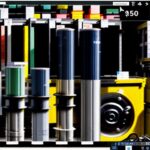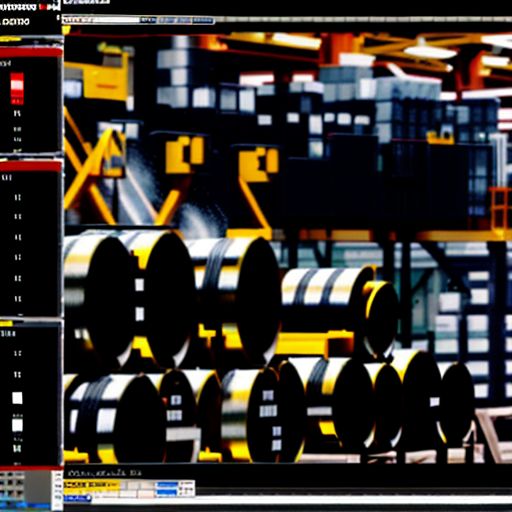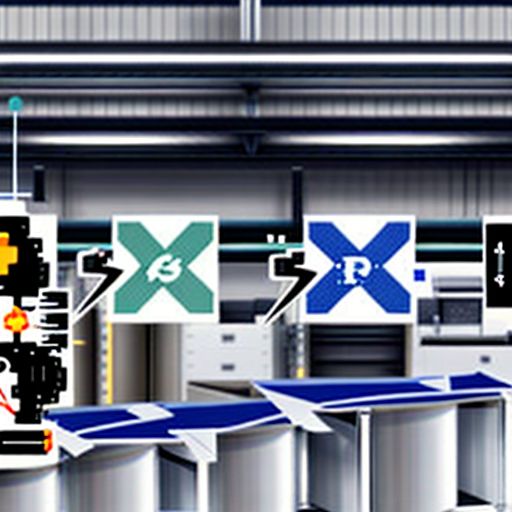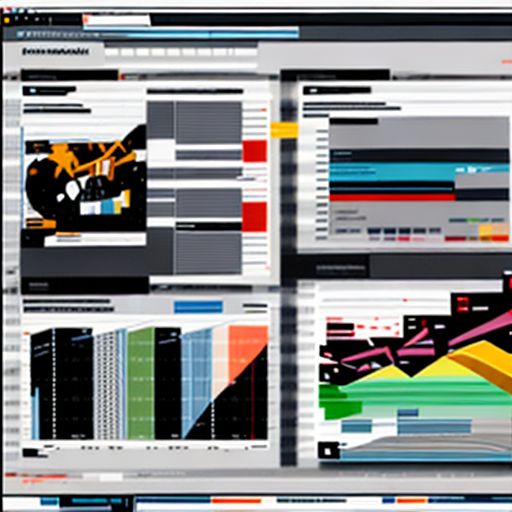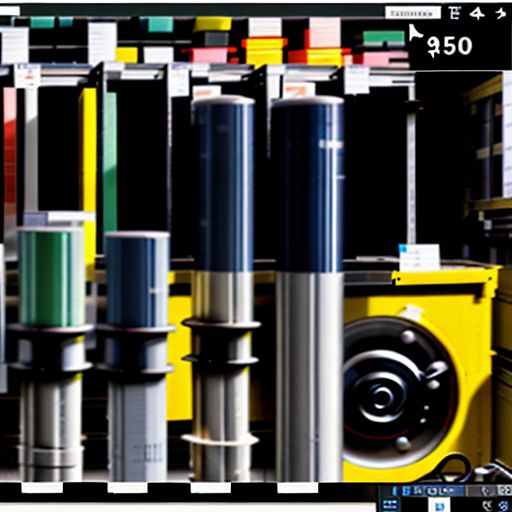Imagine this: your small manufacturing business is thriving. Orders are pouring in, but managing inventory, production, and finances is becoming a juggling act. You’re losing track of orders, materials are going to waste, and your team is bogged down with manual tasks. This is where manufacturing ERP software comes in.
What is Manufacturing ERP Software?
ERP stands for Enterprise Resource Planning. In simple terms, it’s a software system that integrates all your core business processes into a single platform. For manufacturers, this means managing everything from procurement and inventory to production planning and shipping, all within one centralized system.
Why Your Small Manufacturing Business Needs ERP
You might think ERP software is only for large corporations, but that’s a common misconception. Even small and mid-sized businesses (SMBs) in the manufacturing sector can reap significant benefits from implementing an ERP system tailored to their needs. Here’s why:
Increased Efficiency and Productivity
- Automation: Automate repetitive tasks like data entry, freeing up your team to focus on strategic initiatives.
- Streamlined Processes: Integrate and optimize workflows across departments, eliminating bottlenecks and delays.
- Real-Time Data: Gain instant visibility into all aspects of your operations, allowing for data-driven decision-making.
Improved Inventory Management
- Accurate Tracking: Keep track of raw materials, work-in-progress, and finished goods in real-time.
- Reduced Waste: Optimize inventory levels to minimize storage costs and reduce waste from obsolete materials.
- Improved Order Fulfillment: Ensure timely delivery of orders by having accurate inventory data at your fingertips.
Enhanced Collaboration and Communication
- Centralized Platform: Provide a single source of truth for all departments, fostering better communication and collaboration.
- Improved Data Accuracy: Eliminate manual data silos and reduce errors associated with disparate systems.
- Better Decision-Making: Equip your team with real-time insights and data to make informed decisions quickly.
Cost Savings and Increased Profitability
- Reduced Operational Costs: Streamlined processes and automation can lead to significant cost savings.
- Improved Production Planning: Optimize production schedules to minimize downtime and maximize resource utilization.
- Increased Customer Satisfaction: Deliver orders on time and improve customer satisfaction with efficient operations.
erp.bartenderqh.com/wp-content/uploads/2024/07/manufacturing-erp-dashboard-669495.jpg" alt="Manufacturing ERP Dashboard" width="512" height="512">Manufacturing ERP Dashboard
Key Features to Look for in Manufacturing ERP Software
Not all ERP systems are created equal. When selecting a system for your small manufacturing business, consider these essential features:
1. Production Planning and Scheduling
- Material Requirements Planning (MRP): Ensure you have the right materials on hand at the right time to meet production demands.
- Capacity Planning: Optimize resource allocation to maximize production output and minimize downtime.
- Shop Floor Control: Track work orders, manage production schedules, and monitor progress in real-time.
2. Inventory Management
- Barcode and RFID Integration: Automate inventory tracking and reduce manual errors with barcode or RFID technology.
- Warehouse Management: Optimize warehouse layout, manage stock locations, and improve overall inventory accuracy.
- Demand Forecasting: Predict future demand patterns to optimize inventory levels and avoid stockouts or excess inventory.
3. Supply Chain Management
- Supplier Relationship Management (SRM): Manage supplier interactions, track performance, and streamline procurement processes.
- Purchase Order Management: Create, track, and manage purchase orders electronically for improved efficiency.
- Logistics and Shipping Integration: Streamline shipping processes and track deliveries in real-time.
4. Financial Management
- Accounting Integration: Integrate financial data with other business processes for a comprehensive view of your financials.
- Cost Tracking: Track production costs accurately to identify areas for improvement and optimize pricing strategies.
- Reporting and Analytics: Gain insights into key financial metrics and generate custom reports to support decision-making.
Questions to Ask When Choosing Manufacturing ERP Software
Choosing the right ERP system is a critical decision for your business. Here are some questions to ask potential vendors:
- What is the implementation timeline and cost?
- Is the software cloud-based or on-premise?
- Does the system integrate with our existing software solutions?
- What level of customization is available?
- What kind of training and support do you offer?
Conclusion
Implementing manufacturing ERP software can transform your small business, boosting efficiency, improving collaboration, and ultimately increasing profitability. By carefully considering your business needs and evaluating different ERP solutions, you can find the perfect system to take your manufacturing operations to the next level. Don’t wait until managing your business becomes overwhelming – invest in the right tools to help your business thrive.
We’d love to hear from you! Share your thoughts, questions, or experiences with manufacturing ERP software in the comments below.



